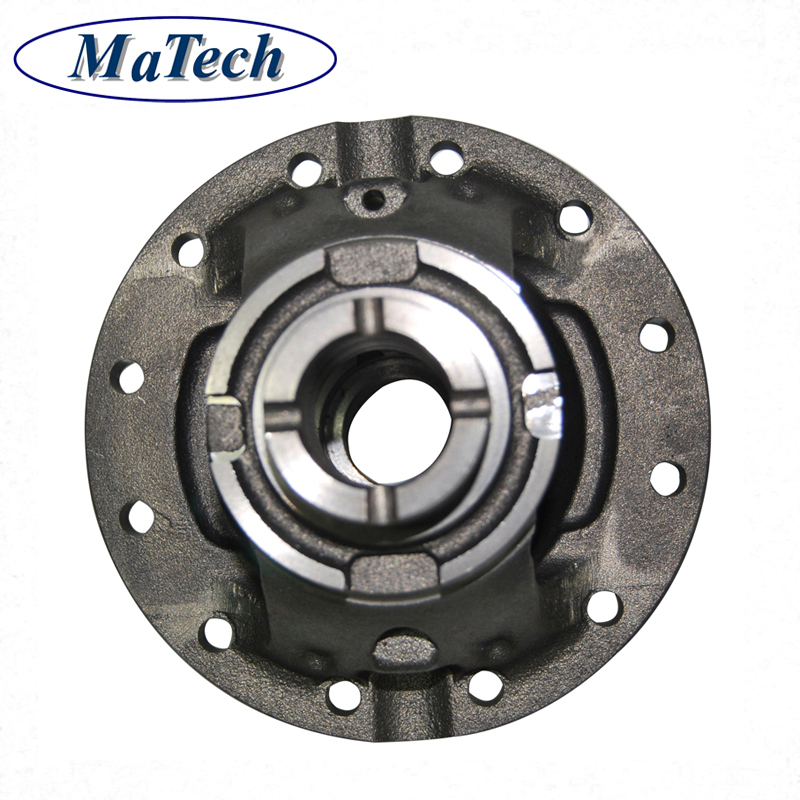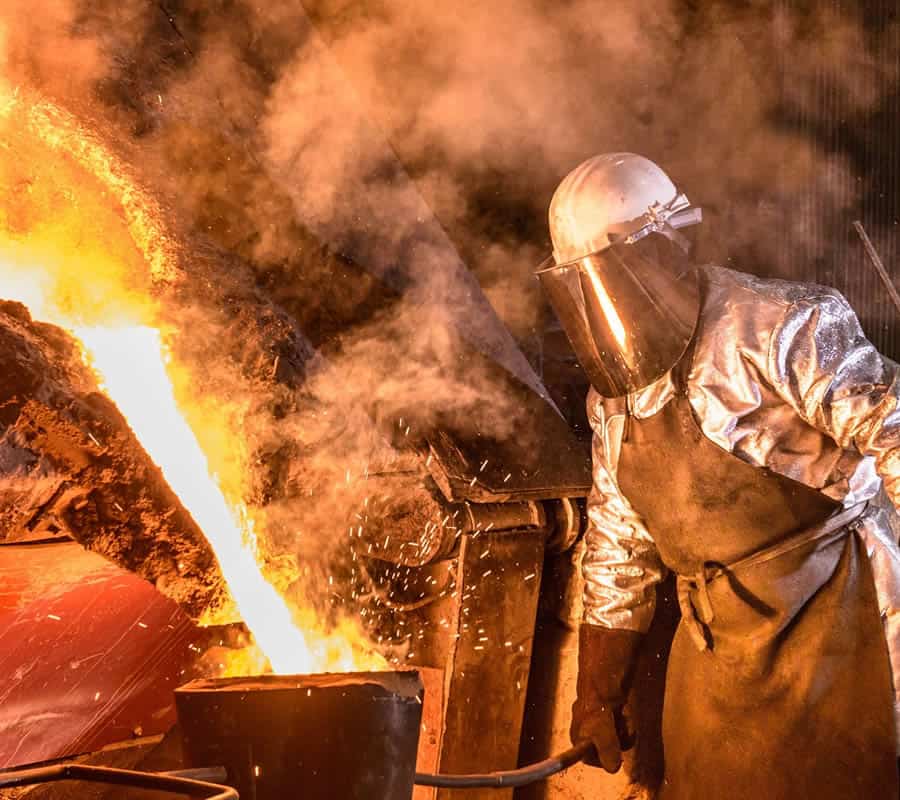

The mineral is applied before the casting process to produce an impact-resistant, durable metal that can last for years. The presence of magnesium in ductile iron makes it the preferred choice for durable parts. Gray iron is known for the following properties: We recommend gray iron to companies looking for durable components.

Gray iron is ideal for OEM (original equipment manufacturing), automotive, and aerospace applications. Castings made of gray iron use an alloy of 95% iron, 2.1 to 4% carbon, and 1 to 3% silicon. The name gray iron comes from the grayish hue that the metal exhibits after the casting process. Clifford Schwenn (pictured) retired and Donald Brunner then became President of Waupaca Foundry, Inc. A conversion creates a 2-cupola operation and the plant becomes what is known today as Plant 2/3. We'll be happy to recommend the ideal type depending on your unique needs. An addition to the industrial park plant of Waupaca Foundry doubles iron casting production capacity at the plant. Our team specializes in two types of iron castings: gray iron and ductile iron casting. We provide affordable and high-quality castings at Fountain Foundry. The alternatives are cold-setting materials like epoxy, concrete, plaster, and clay. Iron is by far the most popular metal that is being turned into parts by this method. While different materials can be ejected from or taken out of a mold, hot metals are the most common materials used. The casting can directly be used once cooled. The solidified metal is known as a casting, which is immediately removed off the mold once properly cooled. Iron casting is a manufacturing process that involves pouring molten material into a mold to take its shape.

Through our gray and ductile iron casting services, customers can get quality metal parts that suit their specifications with quick turnaround times. “Iron seemeth a simple metal but in it’s nature are many mysteries and men who bend to them their minds shall, in arriving days, gather therefrom great profit, not to themselves alone but to all mankind.Clients looking for quality metal parts can count on Fountain Foundry for quality components and products. You can email your resume to or mail to ICRI at 2802 Fisher Road, Columbus, OH 43204. There is some travel involved with the position. ICRI is looking for a seasoned Metallurgical Engineer who likes to be challenged! Ideal candidate should possess a Bachelors or Masters in Metallurgical or Materials Engineering, have worked in a production iron foundry(s) for at least fifteen years, and be proficient with technical writing, typing and Microsoft Office Suite products. ICRI News & Calendar of Events Job Opening Function as an extension of each member’s staff when dealing with customer problems.Develop programs which will serve to educate technical and operating personnel employed by the members.Assist members in solving specific foundry problems in a consulting capacity.Develop new technical knowledge or processes for use by the members.Transfer known foundry technology into member operations.To maintain a technical staff which, by interaction with member technical and operating personnel, can: To operate with the optimum number of members to permit employment of a highly qualified staff, yet limit the number of members so that the unique rapport between staff and members can function.To select members who can benefit from the results but also have the qualifications to contribute to this mutual effort.To provide means by which each member can become more technically proficient in producing low cost, high quality iron castings. Service hours used over purchased amounts, are billed at an adjusted rate. *There is an additional Surcharge for each extra foundry supported over one.ĭues are billed quarterly for each member. Option A 30 Hrs* Option B 55 Hrs* Option C 105 Hrs* ICRI offers three classes of membership to new members to suit your needs. Membership is open to iron foundries in the U.S, Canada and Mexico. ICRI presently has seventeen members with thirty-one foundries located in twelve states. In 1978 GIRI was renamed Iron Casting Research Institute (ICRI) to reflect the variety of irons produced at member plants. Organized in 1939 when ten foundry firms, striving to improve their melting operations, joined forces to employ the Battelle Memorial Institute in Columbus, Ohio, the Gray Iron Research Institute was formed.


 0 kommentar(er)
0 kommentar(er)
